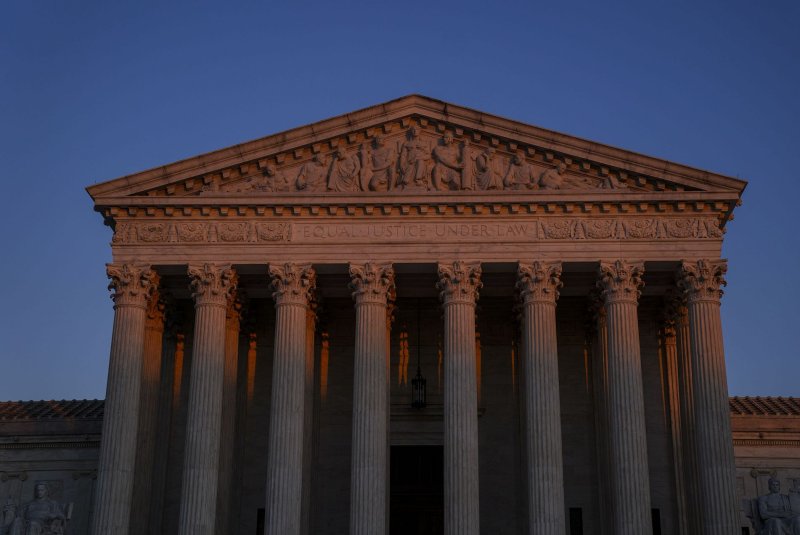
In a case before the U.S. Supreme Court, the state of West Virginia, the lead plaintiff, is trying to reign in the authority of the Environmental Protection Agency. File Photo by Leigh Vogel/UPI | License Photo
Jan. 25 (UPI) -- Nearly 200 members of Congress on Tuesday signed an amicus brief in a Supreme Court case, urging it to affirm a lower court ruling that allows the Environmental Protection Authority to maintain its full powers to enforce the Clean Air Act.
The act calls for states and the EPA to solve multiple air pollution problems through programs based on the latest science and technology information.
The state of West Virginia, the lead plaintiff in the case, is trying to reign in the authority of the EPA. It argued in its petition to the Supreme Court that "the court below held that a rarely used, ancillary provision of the Clean Air Act grants an agency unbridled power-functionally 'no limits' -- to decide whether and how to decarbonize almost any sector of the economy."
West Virginia and other Republican-led states involved in the case argue that the provision "does not clearly give EPA authority to upend the power industry."
The petitioners argue that due to the lower court (District of Columbia Circuit Court) ruling, the "EPA now has a judicial edict not to limit itself to measures that can be successfully implemented at and for individual facilities. "
They further argued that the EPA can set standards "on a regional or even national level, forcing dramatic changes in how and where electricity is produced, as well as transforming any other sector of the economy where stationary sources emit greenhouse gases. Power to regulate factories, hospitals, hotels, and even homes would have tremendous costs and consequences for all Americans."
But the 192 Democratic members of Congress who signed the amicus brief argue that "based on their experience as members of Congress, amici understand the importance of relying on the expert judgment of administrative agencies in technical areas where scientific knowledge, regulatory best practices, and market conditions continue to evolve."
The Congress members on the brief say the statutory provision at issue was added through the 1970 amendments to the CAA, which sought to "speed up, expand and intensify the war against air pollution in the United States."
The brief urged the court to "either dismiss this case as having been improvidently granted, or reaffirm, once again, that the text of the CAA plainly authorizes the EPA to regulate greenhouse gas emissions -- including those arising from existing stationary sources, such as fossil fuel-fired power plants."
The Supreme Court in October decided to hear the case. It is scheduled to be argued on Feb. 28.
No comments:
Post a Comment